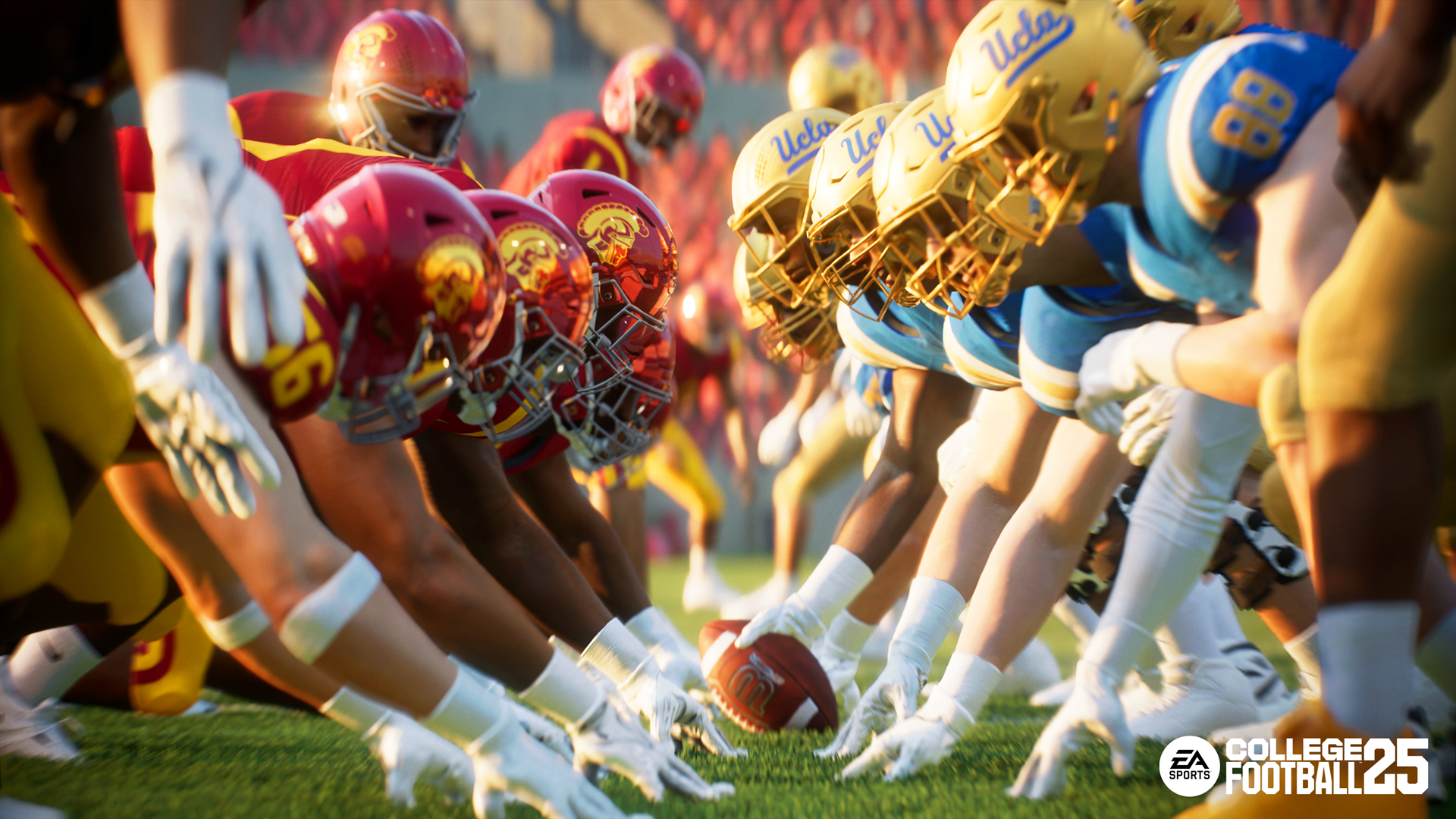Virtual versions of 11,000 real college football players are taking the field for EA's 'College Football 25'
The AI avatars bring digital life to the latest edition of the long-running video game franchise

After an 11-year drought, EA Sports has launched a new college football video game with the likeness of 11,000 players real players. To achieve an accurate look for all those players, "EA Sports College Football 25" relied on artificial intelligence to create digital avatars, as first reported by The Wall Street Journal. The AI marks a major upgrade for the franchise and a milestone in the integration of AI into video games as a whole.
EA Sports wanted to create virtual athletes in-house for its game. The company developed AI tools capable of transforming photos into detailed 3D avatars. But, while full-body scans are standard for producing virtual versions of NFL players in the Madden NFL series, there are six times the number of athletes in the NCAA Division I football. So, EA wanted a more efficient and less expensive option. The company, with approval from the players, instead used headshots from the colleges and an AI model to produce virtual players that could be slotted into the game.
EA canceled its college football game series in 2013 after a class-action lawsuit over likeness rights. With NCAA policy changes on their way, the new game and its real-world likenesses were announced in 2021. Each player got a deluxe copy of the game and at least $600. More prominent players received higher amounts in return for helping promote the game by being on the game cover and encouraging people to buy it on social media.
EA NCAA AI
The models used in the new game are, by necessity, less detailed than Madden NFL models but way more specific than the generic players used for previous editions of EA Sports College Football. The AI also didn't always make a perfect, usable model in its first attempt. In those cases, EA would adjust the images and data supplied to the AI model until they had what they needed, which also helped teach the AI what the company was looking for from its creations.
Helpfully, the AI models will also lay the groundwork for future annual releases of the game series. Having done it once, the AI will likely be faster and better at doing it again, especially with the already cataloged players. It also sets a precedent for other future sports titles like car races, hockey, and others.
By leveraging AI technology, the company efficiently overcame the logistical challenges of scanning thousands of college athletes, providing a more authentic and immersive gaming experience. As the franchise reboots with these innovations, it sets a new standard for realism in sports video games, highlighting the potential for AI to enhance future titles in other ways as well.
You might also like...
- Where to buy EA Sports College Football 25 and the latest on stock
- Generative AI would help studios make games faster, says EA CEO - "there is a real hunger amongst our developers to get to this as quickly as possible"
- Fully AI-generated games by 2030? That’s what Nvidia’s CEO believes – but what exactly will that mean for PC gamers?
Get daily insight, inspiration and deals in your inbox
Sign up for breaking news, reviews, opinion, top tech deals, and more.

Eric Hal Schwartz is a freelance writer for TechRadar with more than 15 years of experience covering the intersection of the world and technology. For the last five years, he served as head writer for Voicebot.ai and was on the leading edge of reporting on generative AI and large language models. He's since become an expert on the products of generative AI models, such as OpenAI’s ChatGPT, Anthropic’s Claude, Google Gemini, and every other synthetic media tool. His experience runs the gamut of media, including print, digital, broadcast, and live events. Now, he's continuing to tell the stories people want and need to hear about the rapidly evolving AI space and its impact on their lives. Eric is based in New York City.